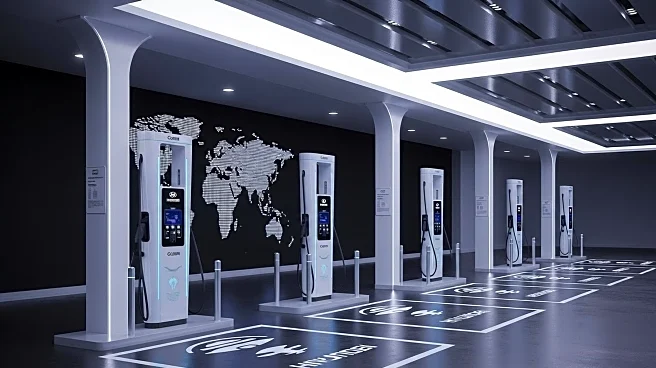What's Happening?
Hyundai has announced plans to increase its investment in the United States by $2.7 billion, following an ICE raid that resulted in the deportation of 317 Korean workers from a Georgia construction site. The investment aims to double auto production at Hyundai's Ellabell, Georgia facility, increasing output from 200,000 to 500,000 vehicles annually. The company plans to produce ten models of electric and hybrid vehicles at the site, up from the current two. This expansion is part of Hyundai's global strategy to produce 5.6 million vehicles annually by 2030, with 60% being electric or hybrid. The raid has sparked debate over U.S. immigration policies, with some arguing that strict enforcement could deter foreign investment.
Why It's Important?
The expansion of Hyundai's investment in the U.S. is significant for the automotive industry, particularly in the context of increasing demand for electric vehicles. It highlights the potential for foreign companies to contribute to the U.S. economy despite challenges posed by immigration enforcement. The situation underscores the tension between immigration policies and economic growth, as businesses seek to balance compliance with the need for skilled labor. The decision to expand production in Georgia could lead to job creation and economic benefits for the region, while also influencing the broader market for electric vehicles.
What's Next?
Hyundai's expansion plans may prompt further discussions on immigration policy and its impact on foreign investment. Stakeholders, including business leaders and policymakers, may explore ways to streamline visa processes to facilitate the entry of skilled foreign workers. The automotive industry will likely monitor Hyundai's progress in ramping up production and its impact on the market for electric vehicles. Additionally, the situation may lead to increased scrutiny of visa applications and enforcement practices, affecting how foreign companies operate in the U.S.








